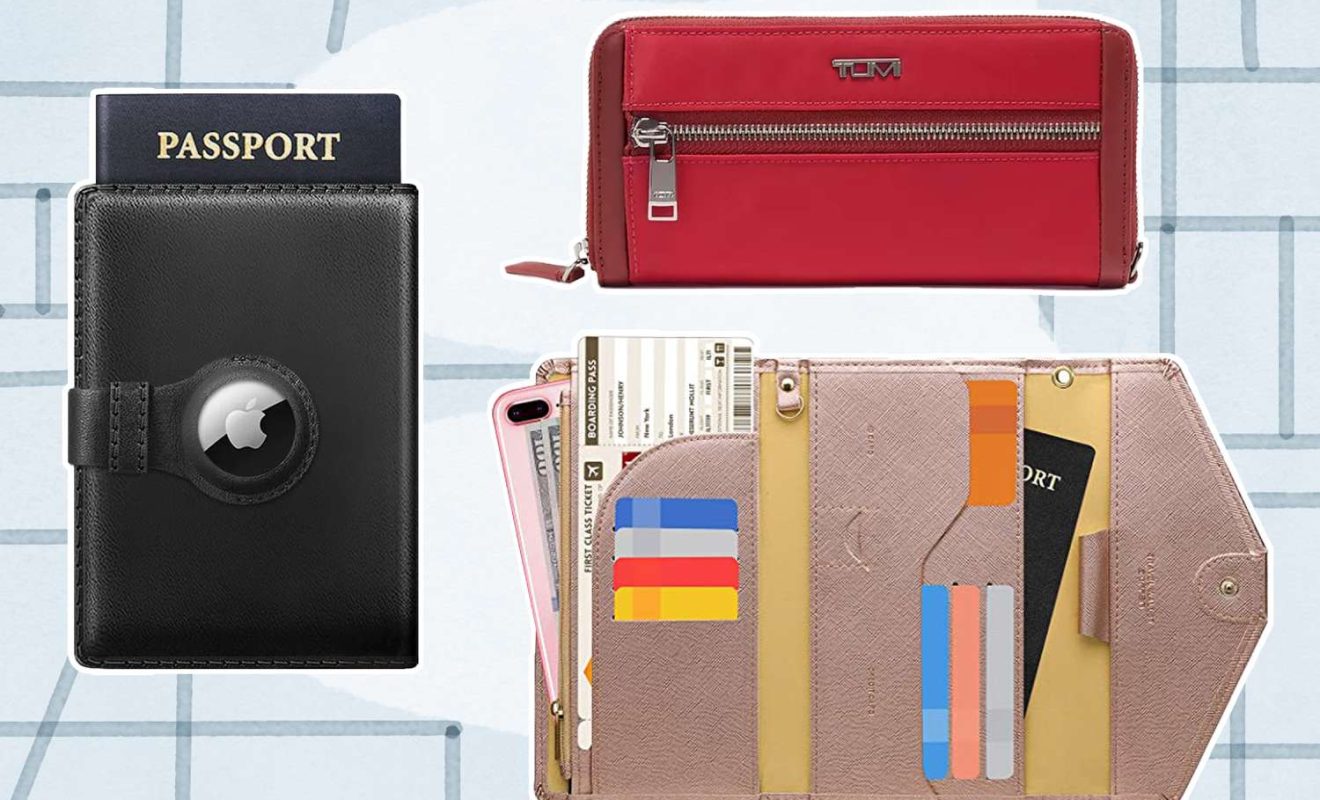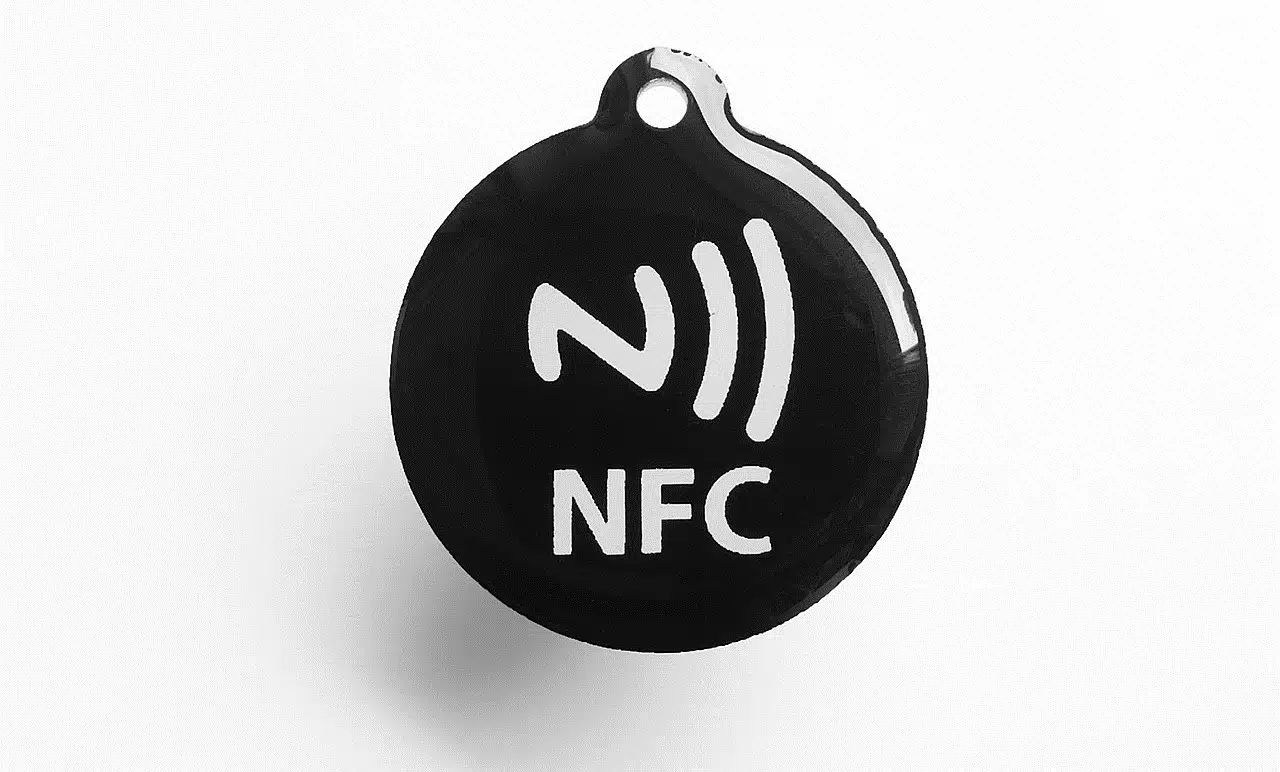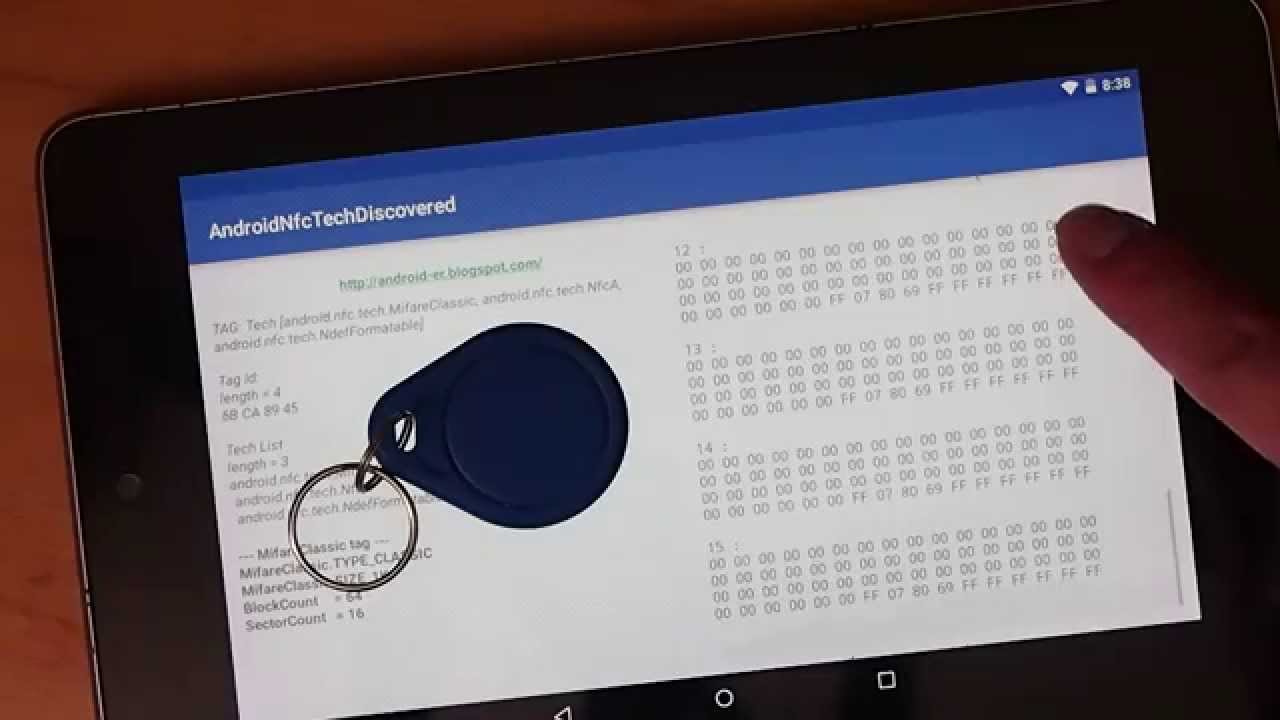Introduction
Welcome to our guide on how to get an RFID tag for your car. If you’ve been wondering about the benefits of using RFID technology and how to go about acquiring an RFID tag for your vehicle, you’ve come to the right place. In this article, we’ll provide you with all the information you need to know about RFID tags, their advantages, and the steps involved in obtaining one for your car.
RFID, which stands for Radio Frequency Identification, is a technology that uses radio waves to automatically identify and track objects or individuals. In the context of cars, RFID tags are small electronic devices that utilize radio frequency signals to transmit and receive data. These tags are typically affixed to the windshield or license plate of a vehicle for easy identification and tracking.
So, why should you consider getting an RFID tag for your car? The benefits are numerous. Firstly, RFID tags offer a convenient and efficient way to pay for tolls and parking fees. By simply equipping your vehicle with an RFID tag, you can breeze through toll booths without the need to physically pay or interact with toll collectors. Similarly, RFID-enabled parking lots allow for seamless entry and exit, as the tag is automatically recognized and the parking fees are charged directly to your account.
Additionally, RFID tags can enhance the security of your car. With an RFID system in place, the chances of unauthorized access or vehicle theft are significantly reduced. The tag can be linked to your car’s keyless entry system or immobilizer, ensuring that only authorized individuals can start and operate your vehicle.
Another advantage of RFID tags is their compatibility with various smart city initiatives. In many urban areas, RFID technology is integrated with traffic management systems, allowing for better traffic flow and congestion reduction. These tags can also be utilized in car rental services, fleet management, and electronic toll collection systems, enhancing overall efficiency and convenience.
Now that you understand the benefits of using RFID tags for cars, you might be wondering where to buy them. In the next section, we’ll explore the different options available for purchasing RFID tags and the factors you should consider in making your selection. So, let’s get started!
What is RFID and How Does it Work?
Radio Frequency Identification (RFID) is a technology that uses radio frequency signals to wirelessly identify and track objects. RFID tags, also known as transponders, are small electronic devices that contain a unique identification code. These tags consist of a microchip and an antenna, which work together to transmit and receive data.
The functioning of RFID technology involves three main components – the RFID tag, the RFID reader, and the backend system. The RFID tag, which is attached to the object being tracked, contains the encoded information. The RFID reader emits radio frequency signals and captures the data stored in the tag when it comes within range. The captured information is then sent to the backend system, where it is processed and analyzed.
RFID tags can be either passive or active. Passive RFID tags do not have an internal power source and rely on the energy emitted by the RFID reader to operate. When the reader sends out radio waves, the tag absorbs the energy and uses it to power the microchip, allowing the tag to transmit its stored data back to the reader. Passive tags are cost-effective, small in size, and have a longer lifespan.
On the other hand, active RFID tags have their own power source, usually in the form of a battery. These tags can transmit data without relying on the energy from the reader, which allows them to have a longer read range and greater data storage capabilities. Active tags are commonly used in applications that require real-time tracking and monitoring, such as asset management and supply chain logistics.
RFID technology operates on different frequency bands, including Low Frequency (LF), High Frequency (HF), and Ultra-High Frequency (UHF). The choice of frequency depends on the specific application and requirements. LF and HF RFID systems are commonly used for short-range applications, such as access control and asset tracking. UHF RFID systems, on the other hand, offer longer read ranges and are often utilized in supply chain management and inventory control.
One of the key advantages of RFID over traditional barcode systems is its ability to read multiple tags simultaneously. RFID readers can capture data from multiple tags within their range, making inventory management and data collection more efficient. Additionally, RFID tags do not require a direct line of sight to be read, as the radio waves can penetrate various materials, such as cardboard and plastic.
In summary, RFID is a wireless technology that uses radio frequency signals to identify and track objects. By utilizing RFID tags, businesses and individuals can streamline processes, enhance security, and improve overall efficiency. The next section will focus on the benefits of using RFID tags for cars, so keep on reading!
Benefits of Using RFID Tags for Cars
RFID tags offer a range of benefits when it comes to car ownership and usage. Let’s explore some of the key advantages:
1. Convenient and Efficient Toll Collection: RFID technology enables seamless and contactless payment of tolls. With an RFID tag attached to your vehicle, you can pass through toll booths without stopping or fumbling for cash. The toll fees are automatically deducted from your linked account, saving you time and hassle.
2. Hassle-Free Parking: RFID tags simplify parking processes by allowing for quick and automated entry and exit. Parking lots equipped with RFID systems can recognize your vehicle as you approach, automatically open the gate, and charge your account for the duration of your stay. This eliminates the need for tickets, paper receipts, and manual payment processes.
3. Enhanced Security: By incorporating an RFID tag into your car’s security system, you add an extra layer of protection against theft and unauthorized access. The tag can be linked to your keyless entry system or immobilizer, ensuring that only authorized individuals can start and drive your vehicle.
4. Efficient Traffic Management: RFID technology is often integrated with smart city initiatives for better traffic flow management. In urban areas with RFID-enabled traffic systems, vehicle movement can be optimized by adjusting traffic signals based on real-time data. This helps reduce congestion and improves overall traffic efficiency.
5. Streamlined Fleet Management: For businesses that manage a fleet of vehicles, RFID tags can greatly simplify fleet management processes. These tags enable accurate and automated tracking, monitoring, and maintenance scheduling. They can also be used to collect data on fuel consumption, mileage, and driver behavior, facilitating better decision-making and cost optimization.
6. Convenient Car Rental Services: RFID tags are commonly used in car rental services to provide a seamless and efficient experience for customers. With an RFID-equipped rental car, customers can easily access and start the vehicle, and the rental fees can be automatically charged to their account.
7. Integration with Smart Infrastructure: RFID technology is being increasingly integrated with various smart city infrastructure, such as smart parking systems, traffic management, and electronic toll collection. By adopting an RFID tag for your car, you become part of a broader ecosystem that aims to optimize transportation and enhance overall urban living.
In summary, RFID tags for cars offer numerous benefits, including convenient toll collection, hassle-free parking, increased security, efficient traffic management, streamlined fleet operations, improved car rental services, and integration with smart city initiatives. Now that you understand the advantages, let’s move on to the next section, where we’ll explore where you can buy RFID tags for your car.
Where to Buy RFID Tags for Cars
If you’re interested in getting an RFID tag for your car, there are several options available for making your purchase. Let’s explore some of the common avenues:
1. Online Retailers: One of the most convenient options is to buy RFID tags for cars from online retailers. There are numerous websites and e-commerce platforms that offer a wide range of RFID products, including tags specifically designed for vehicles. You can browse through different options, compare prices, and read customer reviews to make an informed decision. Some popular online marketplaces and retailers include Amazon, eBay, and specialized RFID technology providers.
2. Car Accessories Stores: Another option is to visit car accessories stores or automotive specialty shops. These establishments often stock a variety of car-related products, including RFID tags. By physically visiting the store, you can have a hands-on experience with the tags, ask questions to the staff, and make a purchase in person. Check with local car accessory stores in your area to see if they carry RFID tags or related products.
3. RFID System Integrators: RFID system integrators are companies that specialize in providing complete RFID solutions, including hardware, software, and implementation services. These companies often work with businesses and organizations that require RFID technology for various applications, such as car rental companies or fleet management services. They can offer tailored RFID solutions for your specific needs, including RFID tags for your car.
4. Automotive Dealerships: Certain automotive dealerships and car manufacturers may offer RFID tags as part of their vehicle accessories. When purchasing a new car or visiting a dealership for maintenance services, inquire about the availability of RFID tags. They may have partnerships with RFID technology providers or offer their own branded tags for added convenience and compatibility with their vehicles.
5. RFID Tag Manufacturers: Lastly, you can directly contact RFID tag manufacturers to inquire about their products. Many RFID technology companies specialize in producing a wide range of tags for various industries, including automotive applications. By reaching out to these manufacturers, you can get detailed information about their product offerings, customization options, and pricing.
When choosing where to buy RFID tags for your car, consider factors such as the reputation of the seller, product quality, customer reviews, and after-sales support. Additionally, ensure that the RFID tags you purchase are compatible with the RFID infrastructure in your area, such as the toll collection system or smart parking facilities.
Now that you know where to buy RFID tags, it’s time to explore the factors you should consider when choosing the right RFID tag for your car. Keep reading to find out more!
Factors to Consider When Choosing an RFID Tag for Your Car
When selecting an RFID tag for your car, it’s important to consider various factors to ensure compatibility, functionality, and effectiveness. Here are some key factors to keep in mind:
1. Frequency: RFID tags operate on different frequency bands, such as Low Frequency (LF), High Frequency (HF), and Ultra-High Frequency (UHF). The choice of frequency depends on the specific application and requirements. For car-related applications, UHF RFID tags are commonly used due to their longer read range and better penetration through materials.
2. Tag Type: There are different types of RFID tags available, including adhesive windshield tags, license plate tags, and in-vehicle tags. Consider the most suitable tag type for your car, taking into account factors such as ease of installation, visibility, durability, and adherence to relevant regulations or requirements.
3. Read Range: The read range of an RFID tag refers to the distance at which it can be detected and read by an RFID reader. Assess the read range requirements for your intended application, such as toll collection or parking access. Ensure that the RFID tag you choose has a sufficient read range to meet your needs effectively.
4. Compatibility: Verify the compatibility of the RFID tag with the existing RFID infrastructure in your area. Ensure that the tag operates on the same frequency and protocol as the readers used in toll booths, parking lots, or other relevant systems. This ensures seamless integration and functionality without any compatibility issues.
5. Security Features: Consider the security features incorporated into the RFID tag. Look for features such as encryption protocols, tamper resistance, and secure access control to ensure that your vehicle’s data remains protected and secure from unauthorized access or cloning.
6. Cost: Compare the cost of different RFID tags and consider your budget. While it’s important to find a cost-effective option, prioritize quality, reliability, and functionality. Cheaper tags may not offer the same level of performance and longevity as higher-priced, more reputable options.
7. Durability: Evaluate the durability of the RFID tag, considering factors like weather resistance, shock resistance, and lifespan. Your tag should be able to withstand normal environmental conditions, such as extreme temperatures, moisture, and vibrations, to ensure consistent and reliable performance.
8. Ease of Installation: Choose an RFID tag that is easy to install on your car. Adhesive windshield tags are simple to attach, while license plate tags can be easily secured to the license plate bracket. Consider the installation process and ensure it can be done without causing any damage to your vehicle.
9. Customer Reviews and Reputation: Before making a final decision, read customer reviews and evaluate the reputation of the RFID tag manufacturer or seller. Look for feedback on the reliability, performance, and customer support of the tag to ensure you are purchasing a high-quality product.
By considering these factors, you can make an informed decision when choosing an RFID tag for your car. The next section will provide you with a step-by-step guide on how to get an RFID tag, so keep reading!
Step-by-Step Guide on How to Get an RFID Tag for Your Car
Obtaining an RFID tag for your car involves a few simple steps. Follow this step-by-step guide to ensure a smooth process:
1. Research and Identify RFID Providers: Begin by researching RFID providers that offer tags suitable for cars. Consider factors such as reputation, customer reviews, product quality, and compatibility with the RFID infrastructure in your area.
2. Choose the Right RFID Tag: Once you have identified potential RFID providers, select the RFID tag that best meets your needs. Consider factors such as frequency, tag type, compatibility, security features, cost, durability, and ease of installation.
3. Place an Order: Contact the chosen RFID provider or visit their website to place an order for the RFID tag. Provide all necessary details like the quantity of tags needed, frequency, and any customization requirements.
4. Provide Vehicle Information: Some RFID providers may require specific vehicle information to encode on the RFID tag, such as license plate number or vehicle identification number (VIN). Ensure you have the necessary information readily available to provide to the seller.
5. Provide Payment and Shipping Information: Follow the payment instructions provided by the RFID provider to complete your purchase. Provide accurate shipping information to ensure the RFID tags are delivered to the correct address.
6. Receive Your RFID Tags: Once you have completed the order and payment process, wait for the RFID tags to be delivered to your designated address. Depending on the provider and shipping method chosen, this may take a few days up to a couple of weeks.
7. Install the RFID Tag: Once you have received the RFID tag, carefully follow the installation instructions provided by the manufacturer. This may involve cleaning the mounting area, removing a protective backing, and securely attaching the tag to your vehicle’s windshield or license plate.
8. Test the RFID Tag: After installation, test the functionality of the RFID tag by taking your car to a designated RFID-enabled location such as a toll booth or parking lot. Ensure that the tag is detected and the associated services function correctly, such as automatically paying tolls or granting access to parking facilities.
9. Contact Customer Support: In case you face any issues or have further questions or concerns about your RFID tag, reach out to the customer support provided by the RFID tag manufacturer or seller. They can assist you with troubleshooting and resolving any potential problems.
By following these steps, you can successfully obtain and install an RFID tag for your car. Enjoy the convenience, security, and efficiency that RFID technology brings to your vehicle!
Conclusion
Congratulations! You now have a comprehensive understanding of RFID tags for cars and how to obtain one for your own vehicle. RFID technology offers numerous benefits, including convenient toll collection, hassle-free parking, enhanced security, efficient traffic management, streamlined fleet operations, improved car rental services, and integration with smart city initiatives.
When considering purchasing an RFID tag for your car, remember to weigh important factors such as frequency, tag type, compatibility, security features, cost, durability, and ease of installation. Research reputable RFID providers, read customer reviews, and choose a tag that meets your specific needs and requirements.
Once you have selected the right RFID tag, place an order with the provider, provide necessary vehicle information, and complete the payment process. Once your RFID tags arrive, follow the manufacturer’s instructions to install them correctly on your vehicle’s windshield or license plate.
Test the functionality of your RFID tag by using it at RFID-enabled locations such as toll booths or parking lots. If you encounter any issues or have questions, reach out to the customer support provided by the RFID tag manufacturer or seller for assistance.
By equipping your car with an RFID tag, you’ll enjoy the convenience, security, and efficiency that this technology brings to your driving experience. Say goodbye to fumbling for cash at toll booths and dealing with parking payment hassles, as your RFID tag will seamlessly handle these transactions for you.
Remember to adhere to local laws and regulations regarding the use of RFID tags for cars, and ensure that your chosen tag is compatible with the existing RFID infrastructure in your area.
With your new RFID tag, you are ready to embrace the benefits of this technology and make your driving experience smoother and more efficient. Enjoy the perks of automated toll collection, effortless parking access, and enhanced security, all thanks to your RFID tag!

























